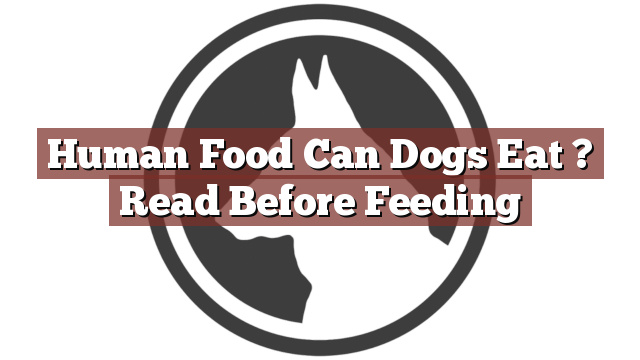Understanding Your Dog’s Dietary Needs
As responsible pet owners, it is crucial to understand our furry friends’ dietary needs. A well-balanced diet is essential for their overall health and wellbeing. Dogs require a diet that is specifically formulated to meet their nutritional requirements. This includes a proper balance of proteins, carbohydrates, fats, vitamins, and minerals. Providing your dog with a nutritionally balanced diet is vital for their growth, energy levels, and immune system.
Human Food Can Dogs Eat? Read Before Feeding
While it may be tempting to share your meals with your beloved canine companion, it is important to exercise caution. Not all human food is safe for dogs to consume. Some human foods can cause severe health issues for dogs, while others may be perfectly safe in moderation. Before feeding your dog any human food, it is essential to educate yourself about which foods are safe and which should be avoided.
Can dogs eat grapes? The answer is no. Grapes and raisins can be highly toxic to dogs, causing kidney failure. Similarly, dogs should not consume chocolate, as it contains theobromine, which can be poisonous to them. Onions and garlic are also harmful to dogs as they can damage their red blood cells. Other foods to steer clear of include avocado, alcohol, caffeine, and xylitol (a sweetener often found in sugar-free products). It is always recommended to consult with your veterinarian before introducing any new food into your dog’s diet.
Pros and Cons of Feeding Human Food to Dogs
Feeding your dog human food can have both pros and cons. On one hand, certain human foods can provide added nutritional benefits to your dog’s diet. For example, lean meats such as chicken or turkey can be a good source of protein. Fruits and vegetables like carrots, apples, and blueberries can offer vitamins and antioxidants. However, it is important to remember that human food should never replace a complete and balanced dog food diet.
One disadvantage of feeding human food to dogs is the potential for weight gain and nutritional imbalances. Many human foods are high in fat, salt, and sugar, which can lead to obesity and health issues. Additionally, some dogs may have specific dietary restrictions or allergies that make certain human foods unsuitable for them. It is crucial to monitor your dog’s weight and overall health closely and consult with your veterinarian to ensure their diet is meeting their specific needs.
Conclusion: Make Informed Choices for Your Dog’s Health
In conclusion, understanding your dog’s dietary needs is crucial for their overall health and wellbeing. While certain human foods can be safe and even beneficial for dogs, it is important to exercise caution and make informed choices. Always consult with your veterinarian before introducing any new food into your dog’s diet. Remember, a balanced and nutritionally complete dog food is the best way to ensure your furry friend receives all the necessary nutrients they need to thrive.
Thank you for taking the time to read through our exploration of [page_title]. As every dog lover knows, our furry friends have unique dietary needs and responses, often varying from one canine to another. This is why it's paramount to approach any changes in their diet with caution and knowledge.
Before introducing any new treats or making alterations to your dog's diet based on our insights, it's crucial to consult with a veterinarian about [page_title]. Their expertise ensures that the choices you make are well-suited to your particular pet's health and well-being.
Even seemingly harmless foods can sometimes lead to allergic reactions or digestive issues, which is why monitoring your dog after introducing any new food item is essential.
The content provided here on [page_title] is crafted with care, thorough research, and a genuine love for dogs. Nevertheless, it serves as a general guideline and should not be considered a substitute for professional veterinary advice.
Always prioritize the expert insights of your veterinarian, and remember that the health and happiness of your furry companion come first.
May your journey with your pet continue to be filled with joy, love, and safe culinary adventures. Happy reading, and even happier snacking for your canine friend!

